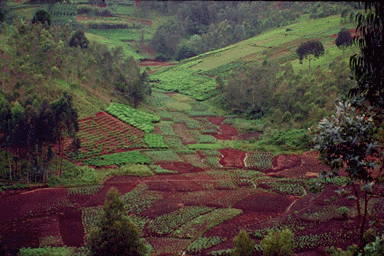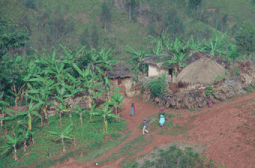- Accaparement des terres
-
Politiques foncières
- Refonder la politique foncière agricole de la France
- Politiques foncières et histoire agraire en Europe
- Les politiques foncières agricoles de la France au XXe siècle
- Le foncier en Afrique de l’Ouest. Fiches pédagogiques.
- Réformes Agraires dans le Monde
- Expérience du Code Rural au Niger
- Politiques foncières et Réforme Agraire. Cahier de Propositions.
- Forêts
- Eau
- Gouvernance des territoires
- FMAT - Forum Mondial sur l’Accès à la Terre 2016
- Autres Conférences et Forums internationaux
- Conférences filmées - Réunions Thématiques AGTER
- Entretiens avec des membres d’AGTER
- Formation - Enseignement
- Formation - Voyages d’étude
- Formation - Modules courts
- Editoriaux - Bulletin d’information d’AGTER
- Préserver l’environnement et les grands équilibres écologiques
- Développer la participation des peuples à la prise de décision aux niveaux national et local
- Respecter les droits humains fondamentaux. Lutter contre les inégalités
- Mettre en place une gouvernance mondiale efficace. Construire la paix
- Assurer l’efficience de la production agricole. En finir avec la faim
- Valoriser et entretenir la diversité culturelle
- Prendre en compte les besoins des générations futures. Gérer les « communs »
Recherche dans les titres, sous-titres, auteurs sur www.agter.org et sur www.agter.asso.fr
Recherche en plein texte sur www.agter.org avec Google
Rechercher dans le moteur Scrutari de la Coredem (multi-sites)
Version française de cette page : Capacité d’innovation des systèmes paysans et gestion des ressources naturelles au Burundi
Innovation capacities on farming systems and management of natural resources in Burundi
Rédigé par : Hubert Cochet
Date de rédaction :
Organismes : AgroParisTech, Association pour contribuer à l’Amélioration de la Gouvernance de la Terre, de l’Eau et des Ressources naturelles (AGTER)
Type de document : Article scientifique
Résumé
Abstract
The highlands of Central Africa are defined by an altitude tropical humid climate, very low urbanization, very small farm-holdings with manual agriculture for family self-consumption.

Burundi farmers have confirmed their outstanding capacity to innovate. While most international experts and Burundi agronomists thought since decades that demographic growth and land pressure had become incompatible with the sustainable intensification of the use of natural resources, Burundi farmers have proven the opposite.
Two agricultural revolutions, undertaken by farmers themselves, have enabled this adaptation.
-
The first one took place during the XVIIth and the XVIIIth century with the introduction of maize and beans from America and the generalization of double crops and the association of animal rearing with agriculture.
-
The second one was a response to the severe crisis of the beginning of the XXth century with the development of labor-intensive garden multiple crop systems in which banana plantations had a key role.
The article of Hubert Cochet is an outstanding demonstration of the value and possibilities of peasant agriculture. He also illustrates how the analysis of agrarian systems and the understanding of production and management systems of natural resources (especially restoration of soil fertility) enable us to understand past and current changes.

The usefulness of this work goes far beyond the geographical frame of Central Africa. It invites us to question ourselves about the conditions of change in farming systems in the context of globalization. The case of Burundi constitutes an astonishing example of endogenous development exclusively based on local resources.
You can download from this website the french versión of this paper.
Hubert Cochet is professor of “Compared agriculture and agricultural development” at Agro Paris Tech (new establishment created in January 2007 from the merge of the National Agricultural Institute of Paris-Grignon, INAPG, ENGREF and ENSIAA. He has been the president of AGTER from 2005 to 2011.
Bibliographie
Cochet, Hubert. Crises et revolutions agricoles au Burundi. INAPG – KARTHALA, Paris. 2001. The French Development Agency gave the Tropiques prize to Hubert Cochet in 2002 for this work.
Défi
Zone géographique
Traductions
- Capacidad de innovación de los sistemas campesinos y gestión de los recursos naturales en Burundi
- Capacité d’innovation des systèmes paysans et gestion des ressources naturelles au Burundi
Organismes


 Agter participe à la Coredem
Agter participe à la Coredem